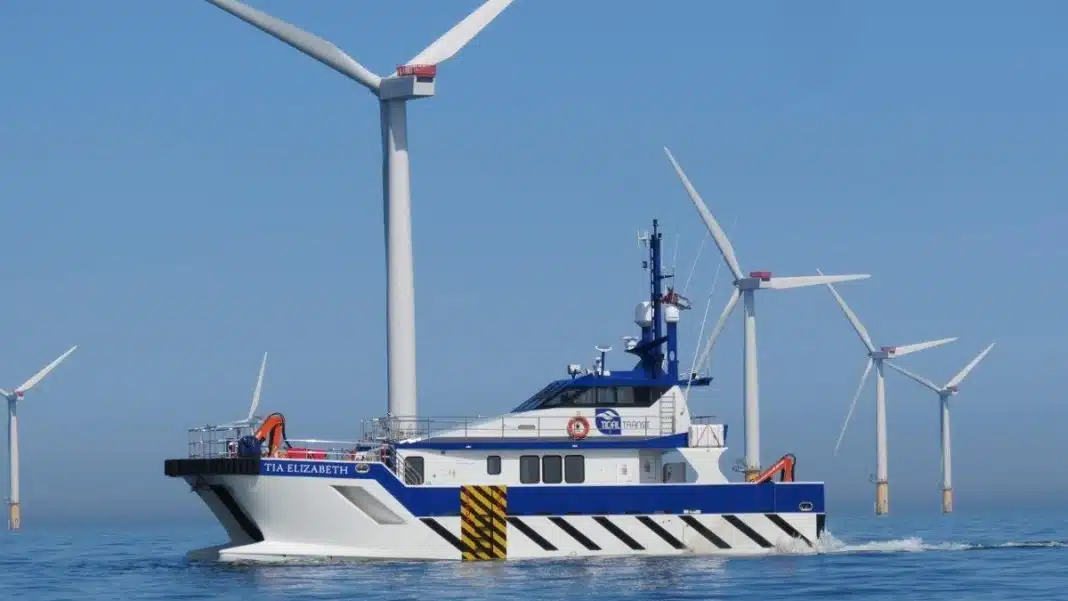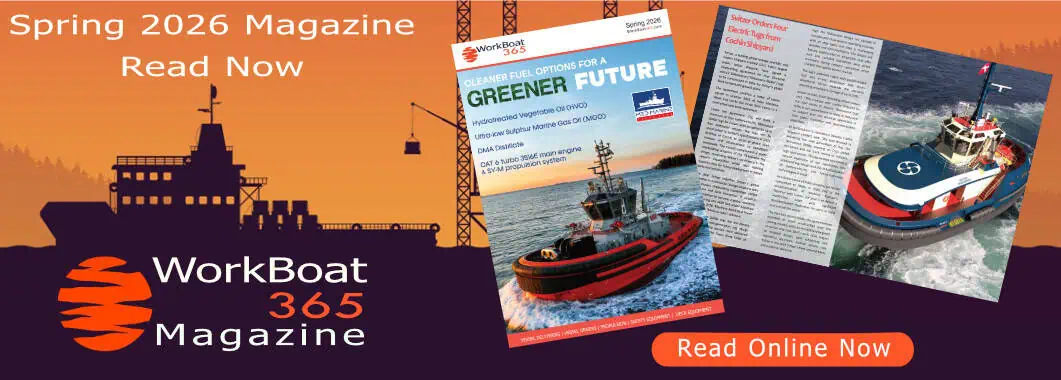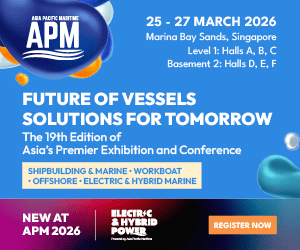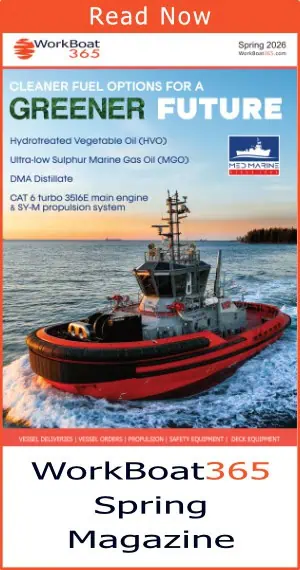Leo Hambro, commercial director of Tidal Transit, explores the growing skills shortage in the UK maritime sector and calls for a stronger focus on developing the skilled mariners of tomorrow.
The UK’s maritime industry stands at a crossroads: on one hand, it’s poised for significant growth driven in part by the burgeoning offshore wind sector. On the other, an overshadowing mariner skills shortage threatens to stall progress and put a ceiling on the sector’s rate of expansion.
According to a report by the Centre for Economics and Business Research (CEBR), the maritime sector is one of Britain’s biggest industries, earning £116 billion turnover in 2022 which is greater than rail and aviation combined. However a concerning trend emerges when holding the sector up against international competitors. While the global maritime industry is projected to double in size to reach $3 trillion by 2030, the UK sector faces its second year of contraction in 2024.

Addressing the main contributing factors to this stagnation will be crucial for strengthening the industry’s long-term potential, unlocking the economic opportunities that the sector provides and ensuring the UK stays competitive in the global maritime landscape. While issues such as rising fuel costs, post-Brexit challenges and broader global economic instability are all certainly putting increased strain on the industry, perhaps the most concerning is that the shrinking supply of maritime professionals.
An ageing workforce, technological shifts reshaping industry practices and an evolving global landscape are all critical challenges facing the UK maritime sector. Insight from the Maritime Skills Commission (MSC) paints a concerning picture: the average age of a maritime professional sits at around 45 years, with nearly 40% of the workforce over the age of 50, and a paltry 14% aged under 30.
This age imbalance presents a two-fold problem. Firstly, the looming retirement of a large proportion of the workforce will lead to a significant slump in available manpower in the not-to-distant future. Experienced workers possess a wealth of knowledge accumulated over years on the job, knowledge that is critical for the safe and efficient operation of maritime operations. Secondly, the lack of younger generation entering the field suggests a declining interest in maritime careers. This deficiency in the talent pipeline further exacerbates the skills gap and could severely hinder the future growth of the industry.
At the same time, advancements in technology are transforming maritime operations. Expertise in traditional areas like engineering and logistics remains crucial, but an overlay of green skills in the fields of renewable energy, clean technologies and alternative fuels is more pressing than ever. According to the Maritime Skills Commission, green jobs within the sector alone are expected to increase in demand by 400% – with some 1.7 million additional jobs required by 2030.
Moreover, the tightening of restrictions on overseas workers further limits the pool of available talent, leading to delays in projects, stretched workloads for existing mariners and potential declines in service quality.
The future of the UK maritime sector hinges significantly on strategic investments into the next generation of professionals. A recent survey by Maritime UK revealed that out of 1,000 respondents living near coastal areas, nearly half aged 18-24 were planning to move away from the coast with lack of jobs cited as the main reason. However, 70% of those indicated that they would be more likely to stay if the right career opportunities were available. This sobering figure underscores the importance of creating and investing in education and vocational training specific to maritime careers tailored to young people.
It takes a long time for the school leavers of today to become the ship masters of tomorrow, in part because in many cases young mariners cannot be taken offshore until the age of 18 due to hours of work regulations. Additionally, an increased emphasis and incentives for further education means fewer and fewer young people are going out to sea in the earlier stages of their lives. It’s for this reason that young people need to be engaged at school and college from an early age and be given the opportunity to earn certifications in the classroom before heading out to sea. This way, young mariners will be well-prepared to enter the profession once they reach adulthood.
This sentiment is shared by Kerrie Forster, CEO of the Workboat Association, who offered his thoughts on training the next generation of mariners. Seafaring, he says, is by its nature a very hands-on vocation: “Many of the skills required to become a qualified and competent Seafarer are taught in a kinaesthetic way – a trainee (whether a cadet, apprentice or a new face onboard) are taught the majority of their role by shadowing, copying and enacting the work of a role-model.
Forster continued: “In order to train the workforce of tomorrow, we need a workforce today. It is not a secret that our members have had vessels tied-up alongside quays in ports due to a lack of crew in 2022-24 when there is plenty of work out there for them. In addition to immigration changes following the departure of UK from the EU, ‘The Great Resignation’, one of the aftermaths of the Covid-19 pandemic, has left the shipping industry up a creek without a paddle. We need experienced seafarers to train new ones, and to train good seafarers, we need experienced seafarers to be active on board our vessels. With increased workloads, new challenges as a result of regulatory changes, decarbonisation upgrades, an under-serviced market to keep happy, and a number of conflicts and big political changes happening across the globe, many experienced seafarers are just not able to juggle their primary roles on board whilst also trying to pass on their knowledge to the new crews of tomorrow.”
In tandem with building up a strong domestic pipeline of young mariners, it’s crucial that the UK opens up its borders to overseas workers to fill the growing demand for an experienced workforce. Due to cumbersome and outdated visa processes, it’s much easier for UK mariners to work overseas than to bring workers into the UK. Employing non-UK professionals involves a long, drawn-out process which must be simplified and streamlined if we are to attract the best talent from the huge global talent pool.
Building diversity, equity and inclusion (DEI) within the maritime sector is equally as important. A recent study by the Maritime Skills Commission revealed that only 3.5% identified as non-white, while just 12% were women. Promoting inclusivity and creating a welcoming environment for all demographics can significantly broaden the pool of talent available which is vital for tackling the complex challenges faced by the industry today.
The UK maritime industry has the potential to ride the wave of rapid growth, but only if it tackles the skills gap head-on. Implementing mentorship programmes, classroom activities, diversity initiatives and inclusive hiring practices can help create a new diverse and career-ready generation of mariners, while bringing in talent from overseas will help alleviate the pressures of an ageing workforce.
Through these concerted efforts, UK maritime can navigate towards a more resilient future and strengthen its position as a world-leader on the international stage.














